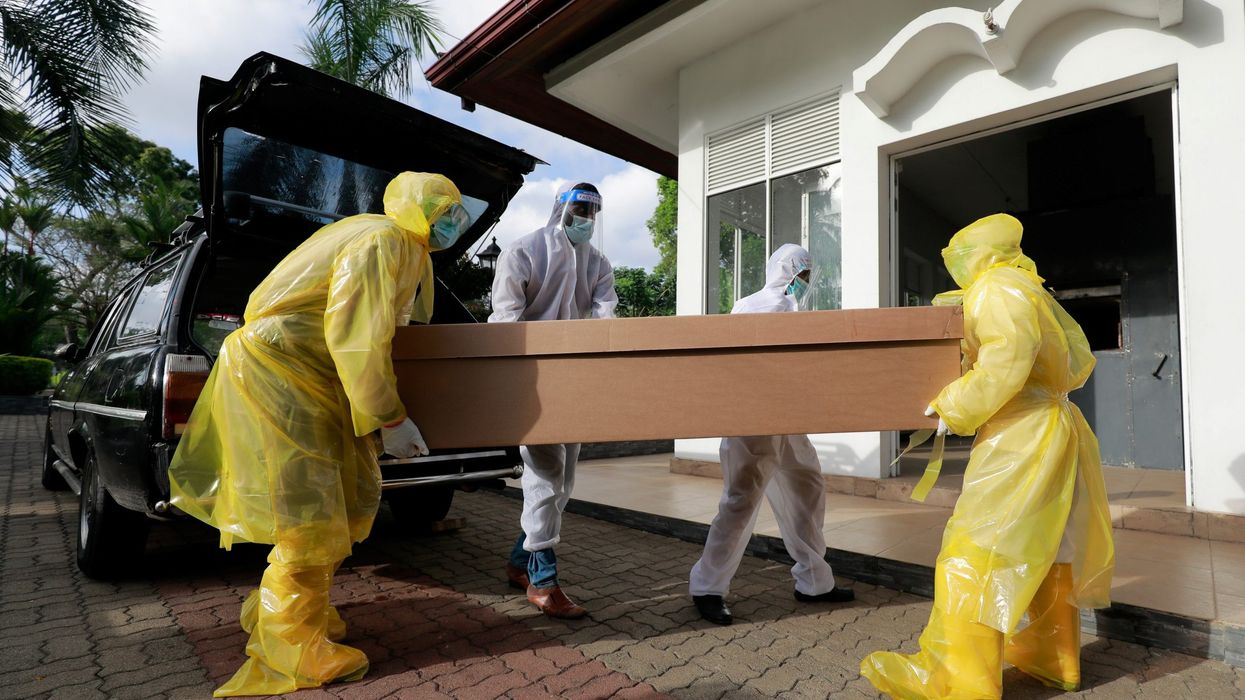AT a factory in Sri Lanka's Dehiwala-Mount Lavinia city, workers use staples and glue to assemble long cardboard boxes, which will be used as coffins for some of the country's coronavirus victims.
The coffin is made out of recycled paper and costs a sixth of the cheapest wooden casket, according to 51-year old Priyantha Sahabandu, the local government official who first came up with the idea.
As Sri Lanka's death toll from Covid-19 surges, some are opting for these cardboard coffins when they cremate their loved ones. The country reported a daily death toll of 194 on Monday (23), with total fatalities reaching 7,560.
Currently, about 400 people die per day on average in Sri Lanka of various causes, including Covid-19, said Sahabandu, a member of the municipal council for Dehiwala-Mount Lavinia, a city in Colombo district.
"To make 400 coffins you have to cut some 250-300 trees. To prevent that environmental destruction, I proposed this concept to the health committee of the council," he said.
"With the spread of the coronavirus, people found it difficult to pay for expensive wooden coffins," he said.
Each coffin costs around Rs 4,500 (£16), compared with Rs 30,000 (£109) for a cheap wooden coffin, Sahabandu said. It can hold up to 100 kilograms.
The coffins were initially used mostly for Covid-19 victims, but have become more popular among those concerned about the environment. Some 350 cardboard coffins have been delivered since early 2020, and the factory is working on another 150 ordered by the council.
"The majority of the people in the country support this. The issue today is supplying it. We are working on that," Sahabandu said.
President Gotabaya Rajapaksa announced a total lockdown on Friday (20) for 10 days to curb a renewed surge in Covid-19 cases driven by the spread of the highly transmissible Delta variant.




